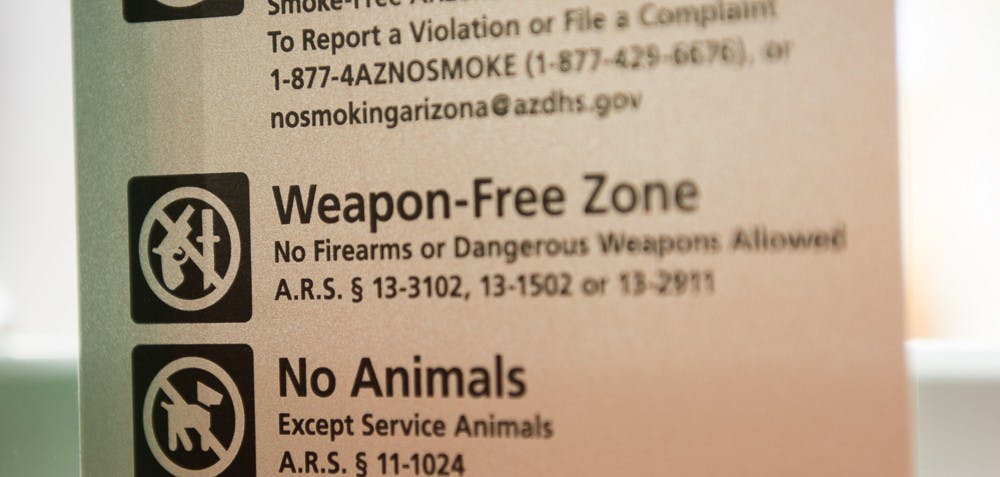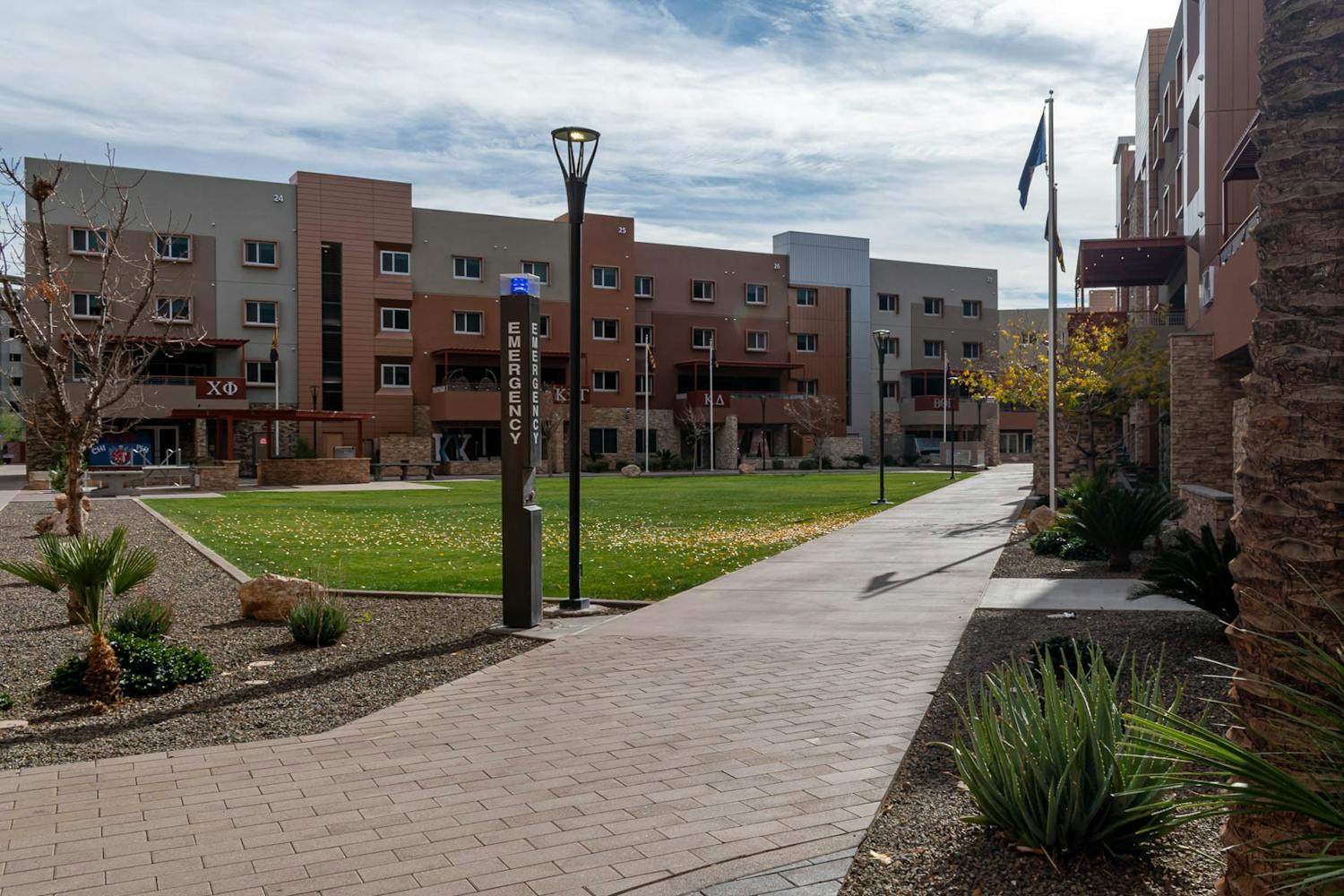After one student was killed and three injured in a confrontation on NAU's campus on Oct. 8, some students have been talking about ASU's policy regarding guns on campus.
ASU, as well as UA and NAU, bans the "use, possession, display or storage of any weapon, explosive device or fireworks" on property owned by or used by any of the three universities per the Arizona Board of Regents Student Code of Conduct.
Exceptions to this policy include, but are not limited to, firearms stored in a "locked and privately-owned motor vehicle." This was the case with Steven Jones, the 18-year-old NAU freshman who is accused of taking a .40-caliber handgun from his vehicle following an on-campus physical confrontation and using it to shoot four students.
Although it is nearly impossible to protect or prohibit any of ASU's nearly 90,000 students from being involved in gun violence, University officials said in a statement that there are plans in place to respond to emergencies, but declined to disclose those plans.
“ASU has plans in place to respond to a wide range of emergencies, and officials across the campuses train regularly to implement those communication, sheltering and evacuation strategies in the event of a crisis," the statement read. "A key component of the University’s preparations is its highly-trained police force of nearly 90 sworn officers. The department’s mutual support relationships with neighboring agencies include joint training exercises to address the threat of an active shooter."
Unfortunately, incidents such as the one at NAU are not unique. NAU's shooting came on the same day as the shooting death of one student on Texas Southern University's campus and nearly a week after a gunman took the lives of nine people at Umpqua Community College in Oregon before taking his own.
To date, there have been at least 150 school shootings in the U.S. since 26 lives were taken in the 2012 Sandy Hook Elementary School shooting — an average of one per week, according to EveryTownResearch.org.
Statistics such as these are the basis for several campus organizations' advocacy for guns on campus, including ASU Students for Self Defense. Political studies senior Jacob Pritchett said he believes on-campus shootings could be prevented if students were allowed to arm themselves.
“For the individual person, no matter what statistics they come up with, the individual person is definitely more safe if they are armed versus when they are unarmed," he said in an interview with The State Press. "I think, regardless of the intention of the laws, the laws don’t always do what they are supposed to do."
Although there are a handful of students and officials who advocate for concealed carry laws on campus, Pritchett's thought process may not match that of some Arizonians. ASU President Michael Crow for example, said in a State Press interview with the editorial board that a college campus is not an appropriate place for guns, even for students who want them for self-defense.
"It's a complicated subject by any matter," he said during the meeting. "We are a school, at the end of the day and we have students of college-age that are on our campus. We run daycare centers and child development centers. ... The place is basically filled with young adults and children. Guns are not appropriate in places filled with young adults and children."
Crow said the University asked both ASU and Tempe police departments what they think of allowing guns on campus, and officers said it was a very bad way to respond to school shootings by allowing guns on campus.
The better option, Crow said, is to focus on profiling the individuals who carry out the shootings: mentally unstable people.
"The tragedy that occurred (on Oct. 1) at Oregon, in 2007 on the Virginia Tech campus, other places since then, seem to largely be the result in every case — in almost every case, I think — of mentally unstable young men," he said during the meeting. "A better outcome for us, I think, would be to focus our attention on how we identify individuals who need help and get them that help as soon as possible."
Reach the reporter at Jlsuerth@asu.edu or follow @SuerthJessica on Twitter.
Like The State Press on Facebook and follow @statepress on Twitter.




